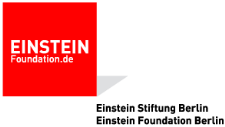Vittorio Gallese
Einstein Visiting Fellow 2016–2020
The Einstein Visiting Fellowships, funded by the Einstein Foundation Berlin, aim to enhance the international profile of universities and research institutions in Berlin by involving leading scientists and scholars from abroad in long-term academic research collaborations. The program primarily targets researchers whose expertise can promote specific areas of academic excellence in Berlin. In contrast to typical visiting researchers who stay at an institution for one semester, the goal of the Einstein Visiting Fellowship is to integrate Fellows into Berlin’s academic landscape on a more sustainable basis.
Vittorio Gallese is Full Professor of Physiology in the Department of Neuroscience, Section of Physiology; coordinator of the PhD Program in Neuroscience of the University of Parma; and director of the Doctoral School of Medicine, all at the University of Parma. Vittorio Gallese is also Adjunct Senior Research Scholar in the Department of Art History and Archeology at Columbia University, New York, USA. Website
Postdoc
Dr. Laura Kaltwasser
Humboldt-Universität zu Berlin
Berlin School of Mind and Brain
Luisenstraße 56, 10117 Berlin, R. 304a
Tel. +49 30 2093-89756
“The Development of Identity: Socio-cultural practices from dyads to groups”
Combining the expertise of the Department of Neuroscience of the University of Parma and of the Berlin School of Mind and Brain, this project will provide a multidisciplinary approach to the development of identity, focusing on self, intersubjectivity, social cognition and their neural bases.
The project’s general theme is the development of socio-cultural identity. As this theme demands an interdisciplinary approach, the current project will bring together philosophical models as well as empirical approaches and methods from neurosciences and psychology.
The project is divided into three main research topics, focused theoretically and empirically on crucial aspects of social cognition:
(1) Intersubjectivity and second-person perspective;
(2) The ‘we-dimension’. The development of personal identity and the second-person perspective;
(3) How different perspectives (1st, 2nd and 3rd) and their use in interpersonal and social communication modulate we-identity.
A working group of 3-4 members will assess and incorporate theoretical approaches and carry out empirical research. Theoretical approaches will help to clarify the most essential features of second-person perspective taking like the distinction between perspective taking and emotional contagion. Behavioral studies, EEG, and fMRI experiments carried out on healthy individuals and selected groups of patients (e.g., autistic individuals, schizophrenic patients) will then be used to understand the neural and psychological mechanisms underlying these features.
Using similar empirical methods, the group will also investigate the role of shared enacted (cultural) practices in the development of group-identities, and the underlying neurobiological mechanisms enabling the development of personal and socio-cultural identity.
Throughout the three years of the project there will be annual public symposia and public lectures, teaching assignments in the “Mind and Brain” master and doctoral programs and exchange visits between the Visiting Fellow's Parma and Berlin groups.



